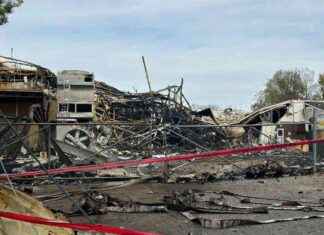The French president, Emmanuel Macron, has asked the opposition forces on Wednesday to clarify as soon as possible how far they are willing to make commitments so that the country is governable and the laws can be carried out. Macron has made a televised address from the Elysee, his first words in public since his supporters, the Ensemble coalition (Together), failed to revalidate their absolute majority in the National Assembly last Sunday.
Those who expected some drastic decision such as the appointment of a new prime minister were disappointed. There was very little self-criticism, although the president did say that he will take into account “the desire for change” expressed in the legislative elections. At the same time he recalled that he won the presidential elections in April, that the citizens renewed their confidence in him. It was a way of reaffirming his intact legitimacy despite the subsequent electoral setback.
The head of state admitted that the correlation of forces in the National Assembly requires an expansion of the majority that supports it, which today is a relative majority, and that this can be done in two ways, or by a coalition or specific pacts in each law. Macron ruled out that one way is to set up a government of national unity, with all the parties inside, since that is a formula for very exceptional situations. That’s what General de Gaulle did at the end of World War II.
The president tried to play down the crisis that opened on Sunday with the argument that coalitions and pacts are necessary in many Western countries because no party has a parliamentary majority. The reality is that, for France, the situation is quite exceptional. Never since the birth of the Fifth Republic, in 1958, had a newly elected president been immediately in the minority in Parliament. There had been “cohabitation” with the opposition, but never such a fractured Assembly and a loss of the presidential majority just several weeks before the re-election of the head of state.
“It will be necessary to build commitments,” said the president, with new methods. He rushed the parties and asked for “clarity and responsibility.” Macron will participate in the European Council in Brussels on Thursday and Friday. Upon his return – and before new international summits in Bavaria, Madrid and Lisbon – Macron will evaluate the response of the parties and make new decisions. It is difficult however that the outcome of the crisis can go so fast.
Among the most urgent projects, Macron mentioned a law to preserve purchasing power against inflation. The president warned, however, that no initiative should lead to more taxes or more state indebtedness.
The leader of the leftist coalition, Jean-Luc Mélenchon, immediately replied forcefully to Macron and flatly rejected the president’s approach. Mélenchon urged the prime minister, Elisabeth Borne, to appear before the Assembly to explain her program and submit to a vote of confidence.








